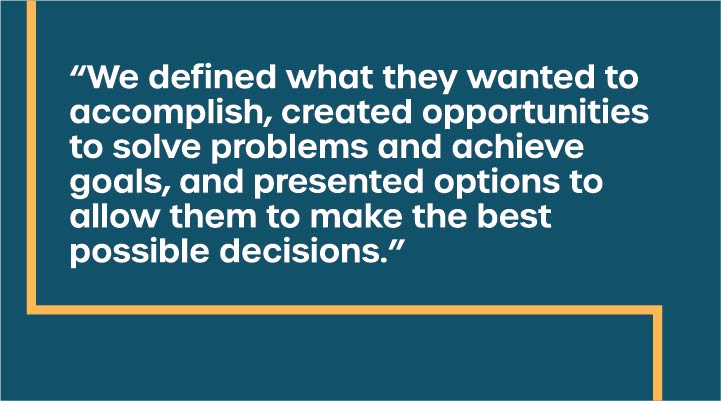Custom Software for a Manufacturing Company
Bidding Department
Industry: Manufacturing, Electronics, Assembly, Aerospace
Employee Count: 350- 375
Have you ever needed a repair estimate when your car broke down and needed it fast? If your mechanic takes too long to get back to you, then you will find a different shop to do the work. This is the same with any parts and service company; it is vital that they get the bids back to the customers so they can create more bids, ultimately generating more money.
A US manufacturer that specializes in compiling and connecting wire bundles for military and aerospace clients including Boeing, Raytheon, and Lockheed Martin, needed software that could help make their process more efficient. Whenever one of these companies needs a part for a plane they send a request, and then companies such as this one, gather the information for the bid as fast and as accurately as possible.

The Problem
While creating product bids for their clients, this manufacturing company was running into issues with its efficiency and internal communication. Some projects were more time-sensitive than others, and their current process was slow which made more room for error. They needed custom software that had automated features to increase productivity and accuracy.
The bidding process goes through many different stages and departments, and the company wanted a new efficient tool that would keep track of the whole process.
Previously, the process for managing bids through their lifecycle was all manual, it involved many customized spreadsheets, a series of internal communication, and had no centralized source of truth for the bids and their history. Creating software that worked for the company came with its own set of challenges such as:
- Mountains of data from different vendors that needed to be integrated into the software.
- Their systems and processes are very complex and intertwined, so making a change to one thing can have a ripple effect.
- Any changes needed to be very strategic and come with rigorous testing to ensure accuracy.
What We Delivered
Prominent was able to create feature-rich software for the bidding process to keep everyone on the same page. The developers were able to go above and beyond, adding certain elements of automation that reduced the time it took to create a bid for current and future clients.
![]() A filter option within all the elements of the bid to see only what matters for a specific bid in a particular stage of the process.
A filter option within all the elements of the bid to see only what matters for a specific bid in a particular stage of the process.
![]() Elements of automation, eliminating the manual search for the best price for parts. Now, these numbers auto-populate and are directly put into the bid.
Elements of automation, eliminating the manual search for the best price for parts. Now, these numbers auto-populate and are directly put into the bid.
![]() A bid status page that shows incoming, submitted, won, not won, and projects they chose not to bid on - all in one place.
A bid status page that shows incoming, submitted, won, not won, and projects they chose not to bid on - all in one place.
![]() Collaborative tools to create bids and monitor their status as they move through the process.
Collaborative tools to create bids and monitor their status as they move through the process.
Technical Stack
The technical stack included .NET, C#, VueJs, SQL Server and heavy reliance on JavaScript and CSS for an extremely sophisticated, highly-interactive UI.
Roles
Our team included the following roles on this project:
-
Software Architect
-
Development Lead
-
Developer
-
Project Manager
-
Technical Analyst
-
UI/UX Developer
-
QA Tester
-
Project Oversight
-
Account Manager
-
Subject Matter Experts

Conclusion
Before this project, Prominent worked with the client to create a solution roadmap. This helped to crystalize the vision for their new bidding tool and helped our team to fully understand that vision. Through the solution roadmap, we were able to see exactly what was needed before starting any development. We defined what they wanted to accomplish, created opportunities to solve problems and achieve goals, presented options to allow them to make the best possible decisions, and recommended solutions.





